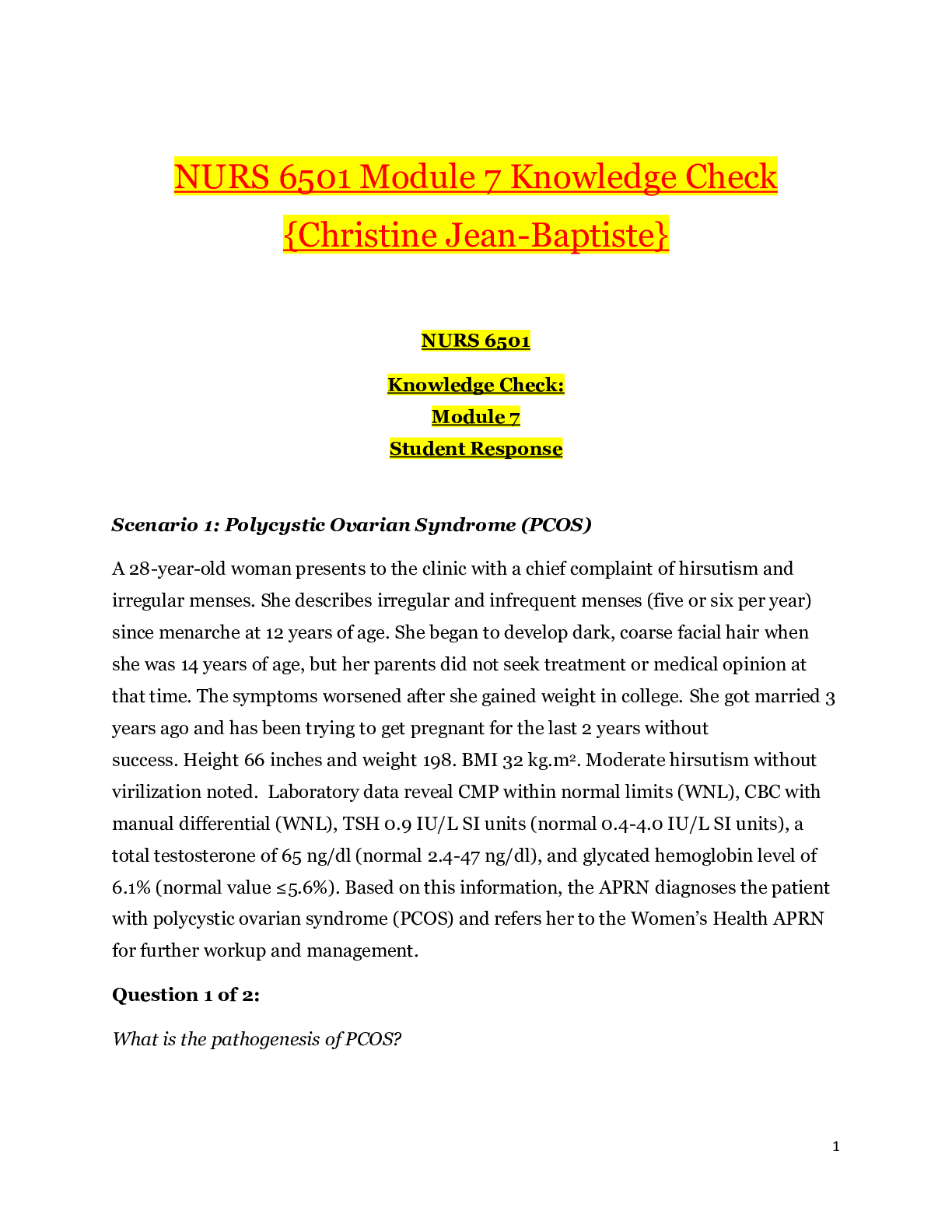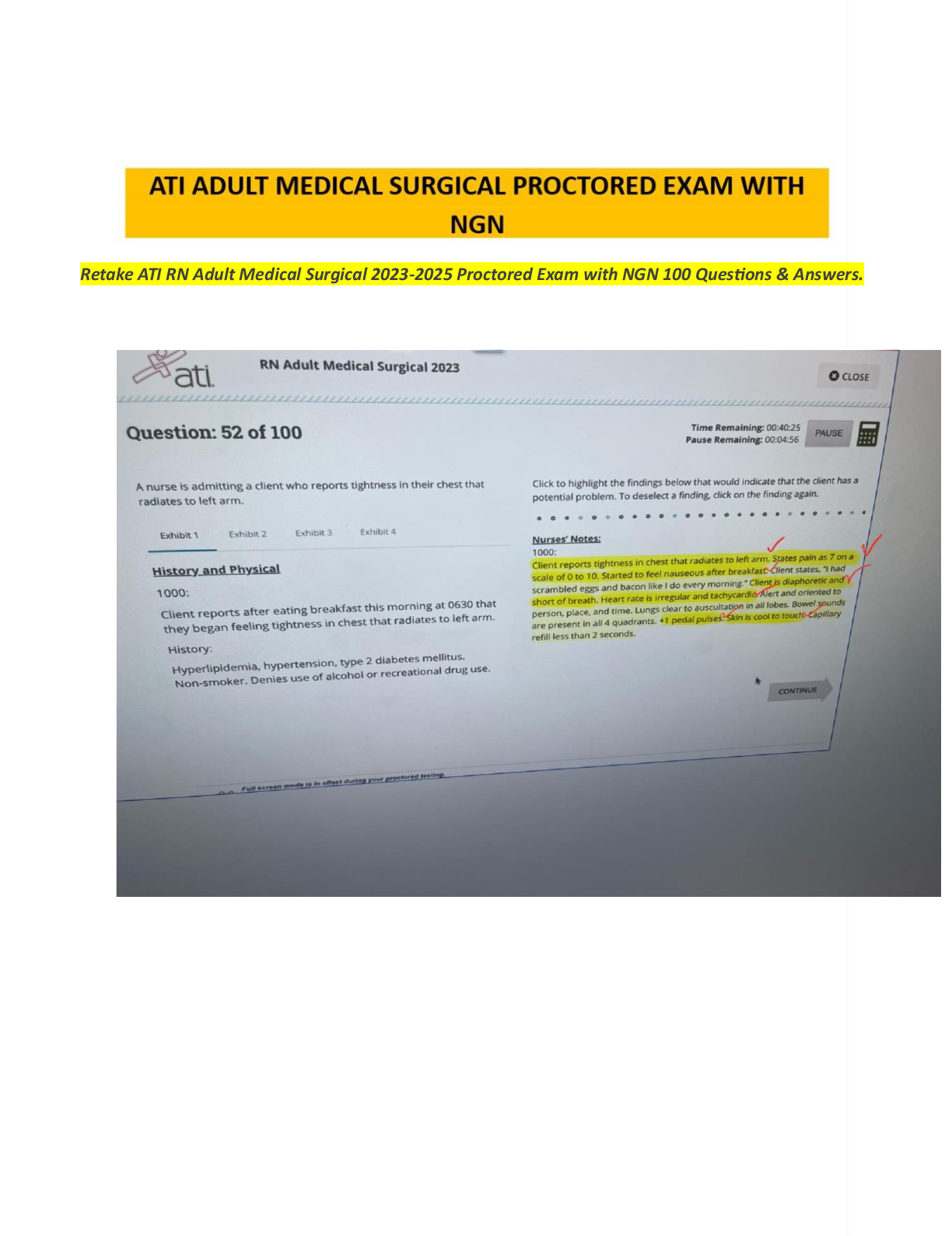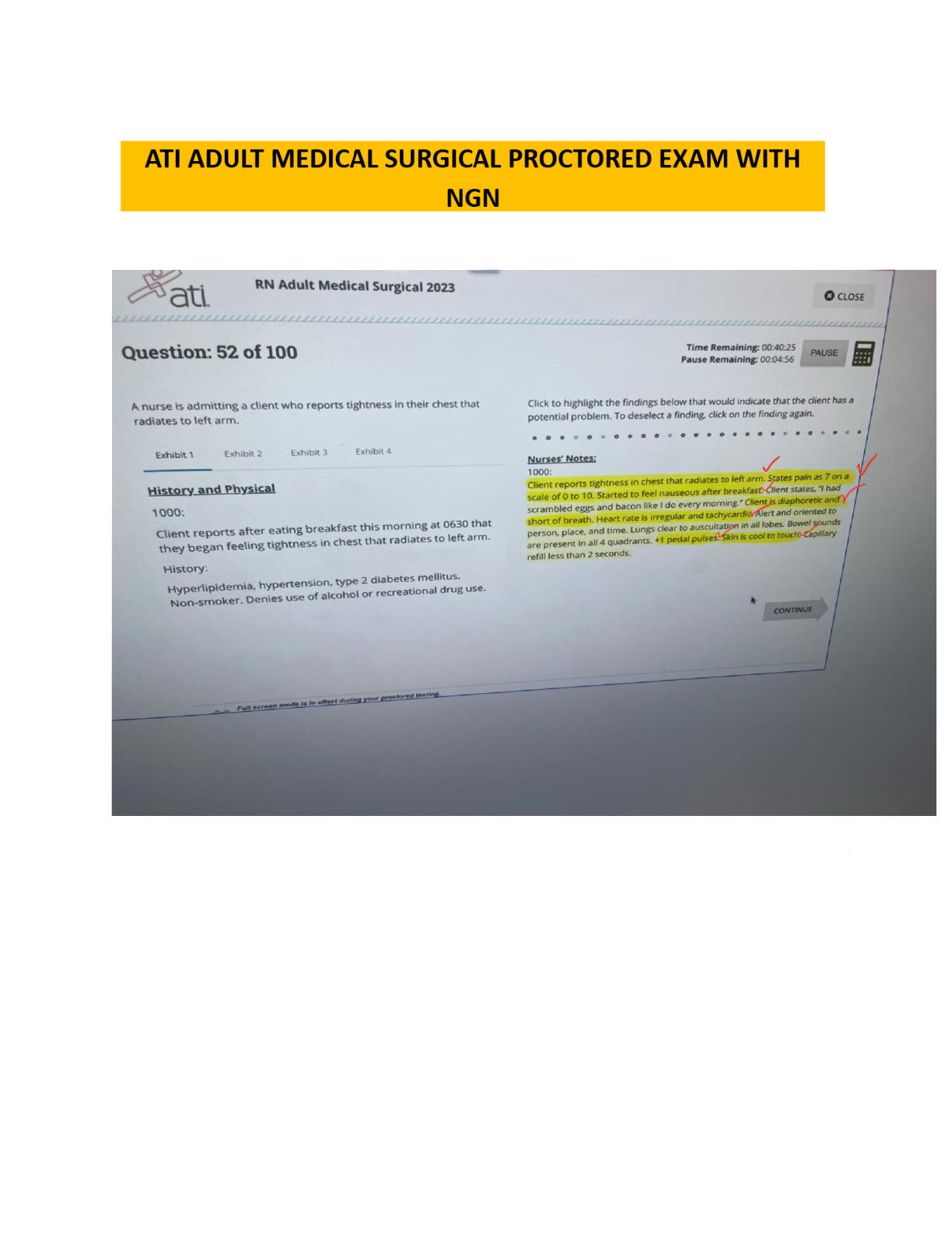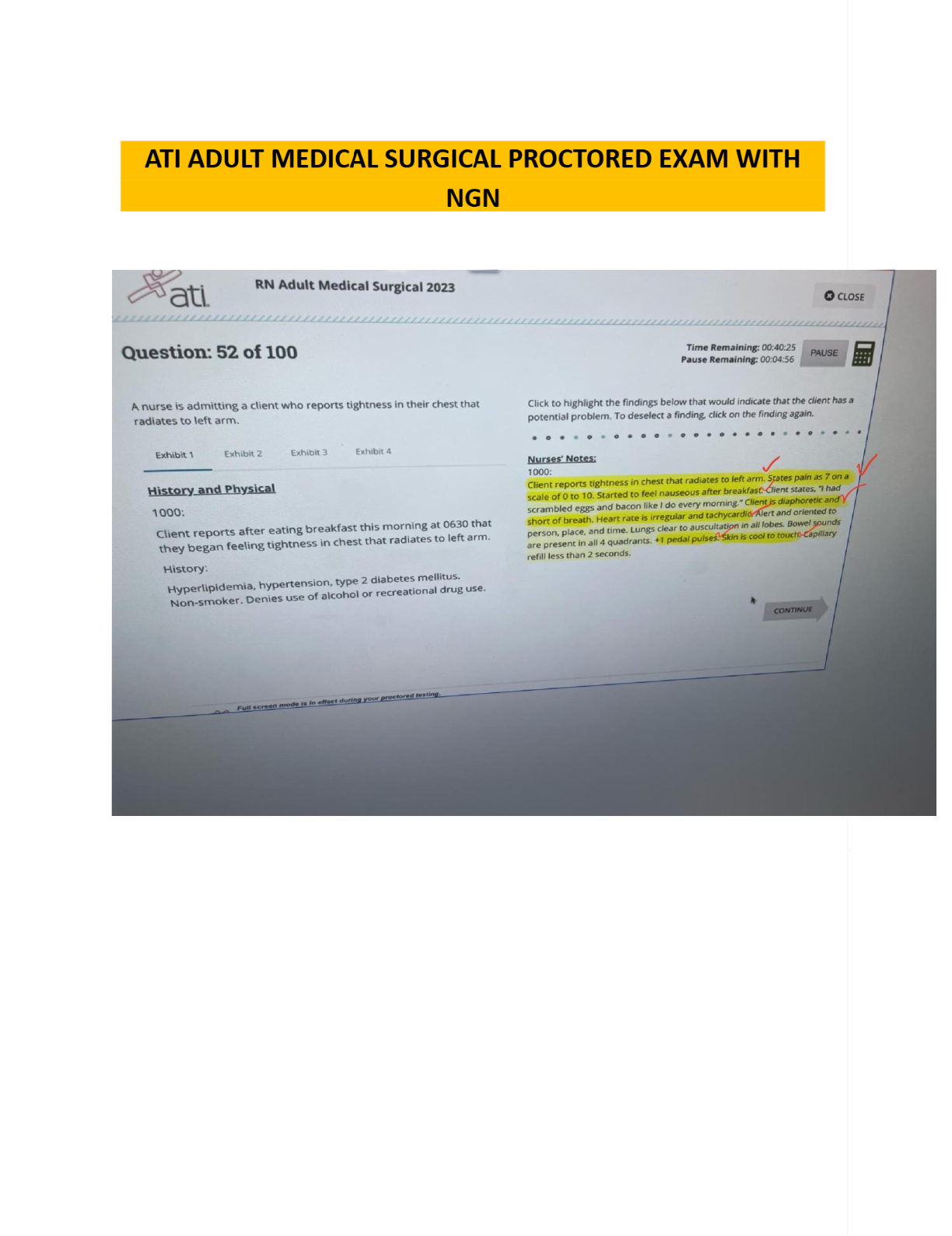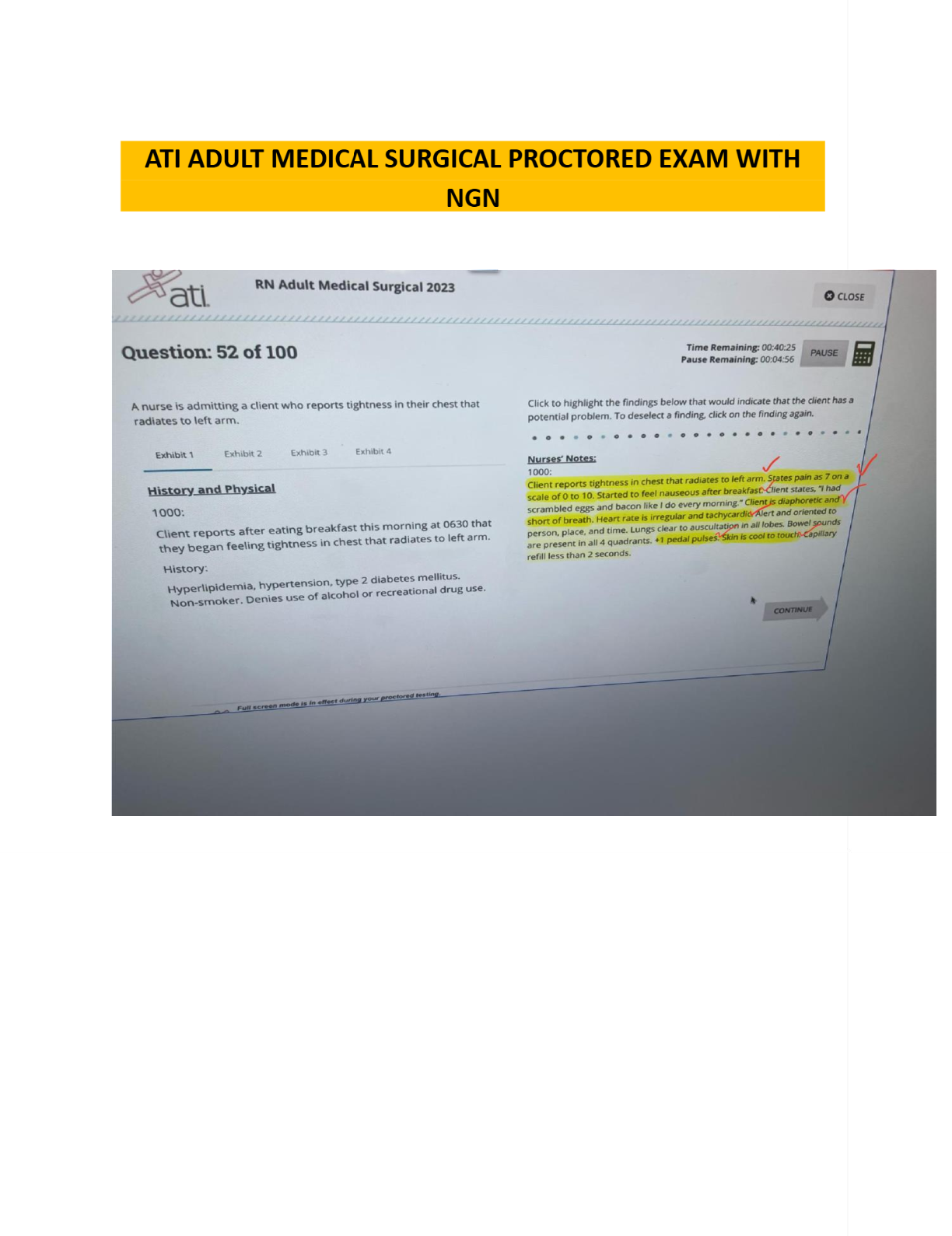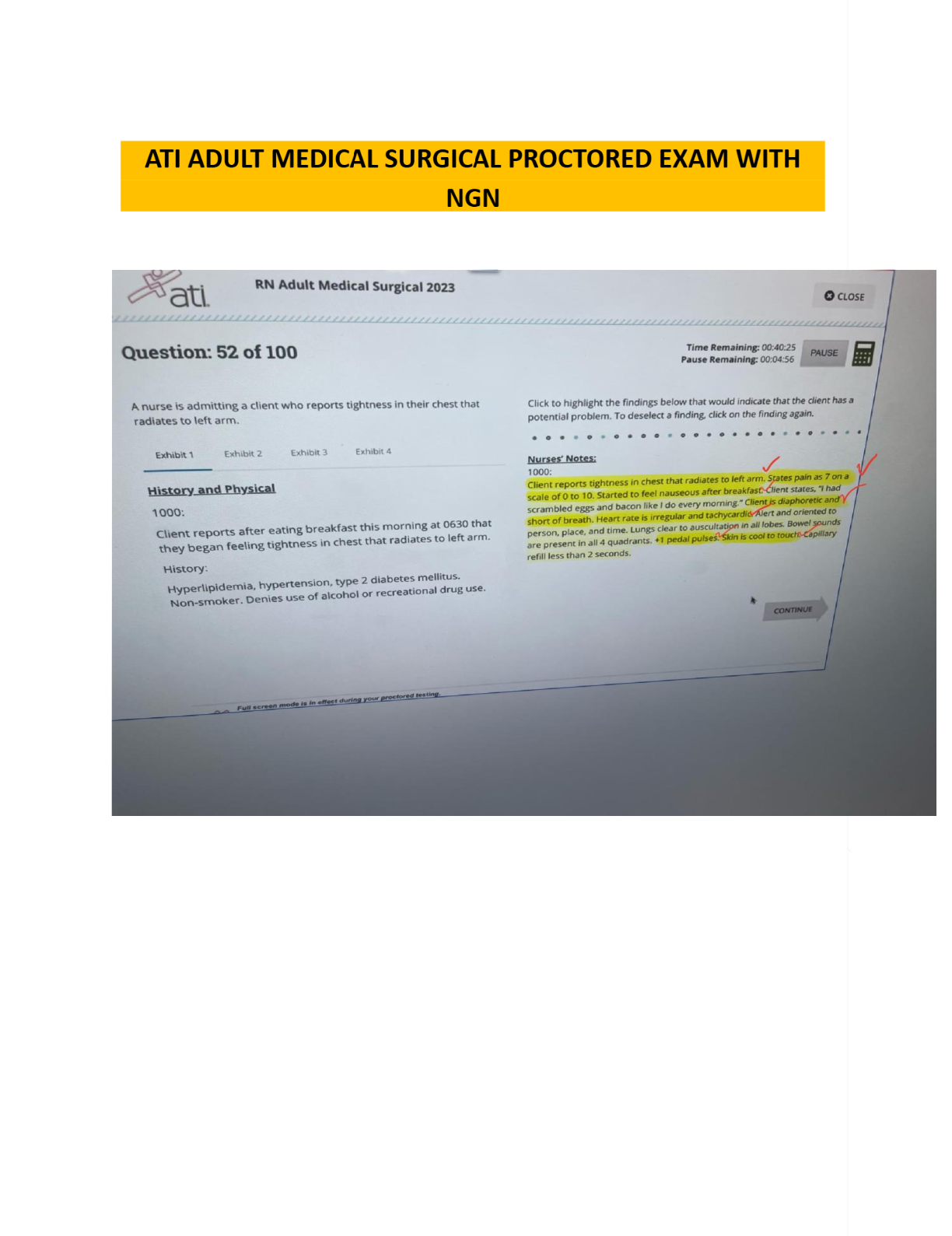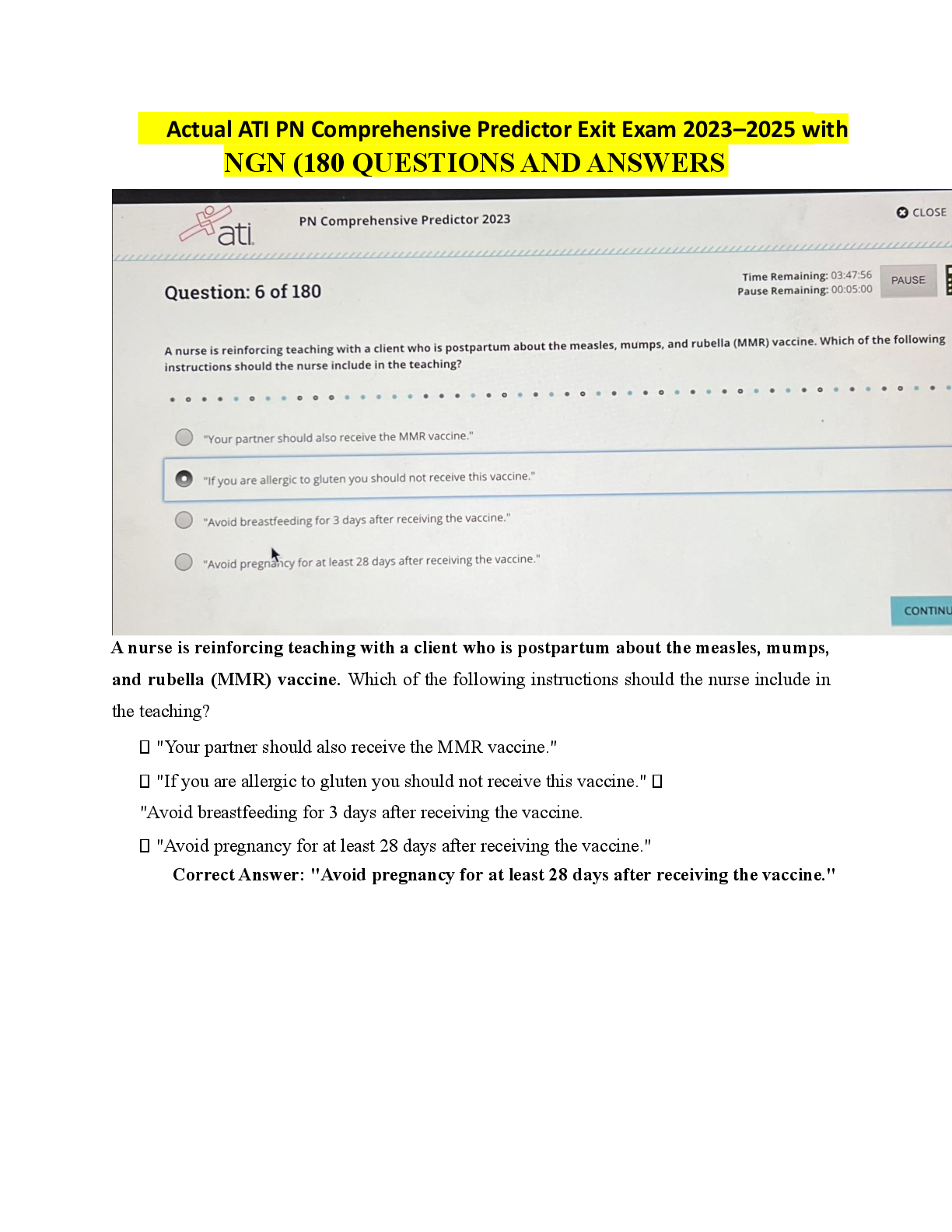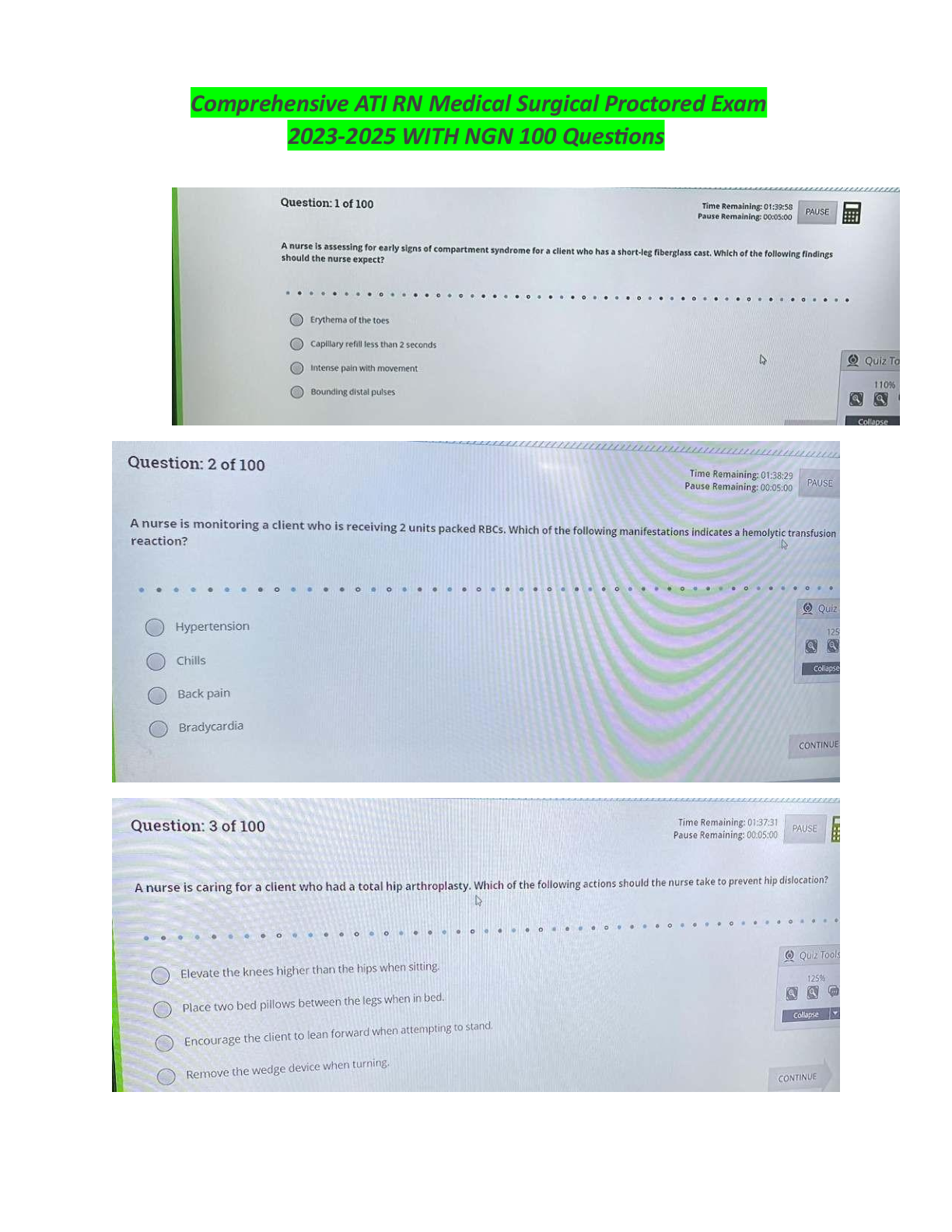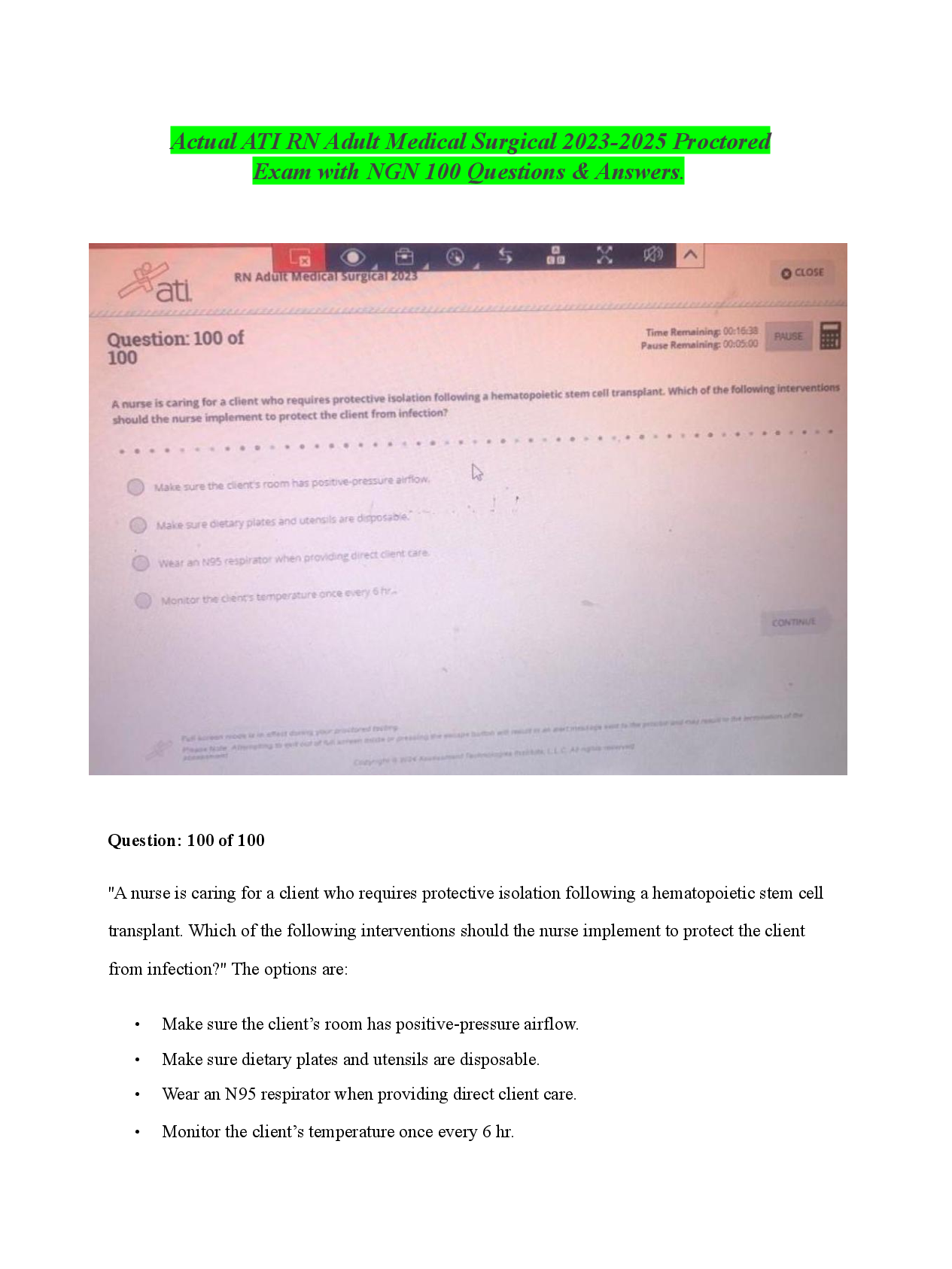*NURSING > EXAM > Christine Jean-Baptiste_Module 6 Knowledge Check_2020 | NURS 6501 Knowledge Check _Student Response (All)
Christine Jean-Baptiste_Module 6 Knowledge Check_2020 | NURS 6501 Knowledge Check _Student Response
Document Content and Description Below
NURS 6501 Module 6 Knowledge Check {Christine Jean-Baptiste} NURS 6501 Christine Jean-Baptiste Knowledge Check: Module 6 Student Response This Knowledge Check reviews the topics in Module ... 6 and is formative in nature. It is worth 20 points where each question is worth 1 point. You are required to submit a sufficient response of at least 2-4 sentences in length for each question. Scenario 1: Schizophrenia A 21-year-old male college student was brought to Student Health Services by his girlfriend who was concerned about changes in her boyfriend’s behaviors. The girlfriend says that recently he began hearing voices and believes everyone is out to get him. The student says he is unable to finish school because the voices told him he was not smart enough. The girlfriend relates episodes of unexpected rage and crying. Past medical history noncontributory but family history positive for a first cousin who “had mental problems”. Denies current drug abuse but states he smoked marijuana every day during his junior and senior years of high school. He admits to drinking heavily on weekends at various fraternity houses. Physical exam reveals thin, anxious disheveled male who, during conversations, stops talking, cocks his head and appears to be listening to something. There is poor eye contact and conversation is rambling. Based on the observed behaviors and information from girlfriend, the APRN believes the student has schizophrenia. Question 1 of 4: Describe the positive symptoms of schizophrenia and relate those symptoms to the case study patient. Positive symptoms of schizophrenia include hallucinations that may be auditory, olfactory, somatic-tactile, visual, voices commenting, and voices conversing. Delusions including delusion of being controlled, delusion of mind reading, delusion of reference, delusion of grandiosity, guilt, persecution, somatic thought broadcasting, thought insertion and thought withdrawal. Thought disorder symptoms include distractible speech, incoherence, illogicality, circumstantially, and derailment. Bizarre behaviors that include aggressiveness and agitated states, clothing appearance, repetitive stereotyped, and social and sexual behavior. The patient in the scenario exhibit signs of auditory hallucinations, disheveled appearance, and persecution. Question 2 of 4: Explain the genetics of schizophrenia. Schizophrenia is a heritable disorder. Schizophrenia is not a simple genetic disorder in which inherited disease alleles will always lead to illness. Schizophrenia likely involves several genes located on different chromosomes and differs from mendelian disorders, in which genes are fully penetrant and recognized as the primary cause of disease. Increased paternal age is associated with a greater risk of schizophrenia. The risk of schizophrenia is elevated in biologic relatives of persons with schizophrenia but not in adopted relatives. The risk of schizophrenia in first-degree relatives of persons with schizophrenia is 10%. If both parents have schizophrenia, the risk of schizophrenia in their child is 40%. Concordance for schizophrenia is about 10% for dizygotic twins and 40-50% for monozygotic twins. Question 3 of 4: The APRN reviews recent literature and reads that neurotransmitters are involved in the development of schizophrenia. What roles do neurotransmitters play in the development of schizophrenia? The onset of schizophrenia was initially hypothesized to stem from abnormally high concentrations of the brain neurotransmitter dopamine. This dopamine hypothesis of schizophrenia was proposed on the basis of pharmacologic studies showing that antipsychotic drugs were potent blockers of brain dopamine receptors. A strong correlation was found between the clinical potencies of first-generation antipsychotic drugs and their affinity for the dopamine D2 receptor. Another neurotransmitter system that may underlie the pathogenesis of schizophrenia is the excitatory neurotransmitter glutamate and its actions on the NMDA receptor subtype. The glutamate hypothesis of schizophrenia proposes that under activation of glutamate receptors contribute to schizophrenia. In schizophrenia, glutamate concentrations in the CSF are reduced along with in a decrease in cortical glutamate synthesis. [Show More]
Last updated: 3 years ago
Preview 1 out of 12 pages

Buy this document to get the full access instantly
Instant Download Access after purchase
Buy NowInstant download
We Accept:

Reviews( 0 )
$7.50
Can't find what you want? Try our AI powered Search
Document information
Connected school, study & course
About the document
Uploaded On
Jun 23, 2021
Number of pages
12
Written in
All
Additional information
This document has been written for:
Uploaded
Jun 23, 2021
Downloads
0
Views
141

.png)




